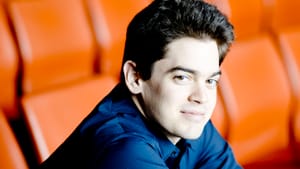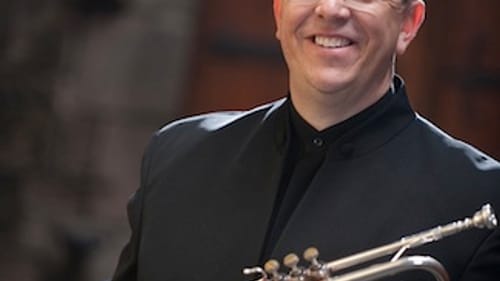Stay in the Loop
BSR publishes on a weekly schedule, with an email newsletter every Wednesday and Thursday morning. There’s no paywall, and subscribing is always free.
Shani shines as visiting conductor
Philadelphia Orchestra presents 'Stravinsky and Prokofiev'

What a pleasure to hear Stravinsky’s suite from The Firebird (not the entire ballet, as performed in the Philadelphia Orchestra’s 2015-16 season), and in such a delightful performance by visiting conductor Lahav Shani. Still in his 20s, Shani is currently one of the brightest young stars in the international conducting firmament, and it’s easy to see (and hear) why.
In five kinetic movements, Shani brought out the unique personality and character of each section. Because it is extracted from a ballet with a story to tell, the work can be listened to programmatically. Under Shani’s baton, we can imagine the awakening and spritely dance of the firebird, a magical creature from Russian folklore with sparkling eyes and golden feathers so luminescent even one can light up a room.
Stravinsky teases the listener with a wisp of celesta, a flicker of oboe, and just enough harp to cushion a memorable oboe solo in the second movement.
A young man, now sporting a beard, Shani displayed personal reserve and grace at the podium. The music he elicited from the ensemble was stately, exciting, and enlightening, each movement individually realized as a standalone composition. Shani is scheduled to assume the role of chief conductor with the Rotterdam Philharmonic (Yannick Nézet-Séguin’s erstwhile position) and in a couple of years will become music director of the Israel Philharmonic.
Especially beguiling were the bucolic second movement with Richard Woodhams’s memorable oboe solo; the berceuse with its sinuous bassoon melody, beautifully played by Daniel Matsukawa, principal bassoon, supple as a snake gliding up a tropical river; and the majestic final movement, reminding us a bit of Mussorgsky’s Great Gate at Kiev as orchestrated by Ravel.

Classical jazz
The program opened with the first Philadelphia Orchestra performance of Christian Lindberg’s Akbank Bunka for trumpet and orchestra. David Bilger, principal trumpet, soloed in this three-movement trumpet concerto. The work is witty, upbeat, and propelled from start to finish by a driving momentum.
As a brass player, Lindberg understands the range and possibilities of the trumpet, wielded with astonishing virtuosity by the soloist. Although Lindberg and the program notes mention the work’s jazz elements, they were by no means overt. This was a pleasant, listenable selection (composed in 2004) worth hearing again.
The final work on the program was Prokofiev’s massive Symphony No. 5 in B-flat major, Op. 100. Prokofiev’s popularity has had its ups and downs. When I took a college course in 20th-century music in the 1970s, he wasn’t even on the syllabus. Today he enjoys a renaissance of sorts. His music can be appreciated on many levels: intellectual, within its historical context; for its unique mix of power and delicacy; and the ear-catching harmonies that grate, but not distressingly so.
What, When, Where
Stravinsky and Prokofiev. "Ahbank Bunka, for trumpet and orchestra," by Christian Lindberg; Suite from The Firebird (1919 version), by Igor Stravinsky; Symphony No. 5 in B-flat major, Op. 100, by Sergei Prokofiev. Principal trumpet, David Bilger; conducted by Lahav Shani. Philadelphia Orchestra. March 22-24, 2018, at the Kimmel Center's Verizon Hall, 300 S. Broad Street, Philadelphia. (215) 893-1999 or philorch.org.
Sign up for our newsletter
All of the week's new articles, all in one place. Sign up for the free weekly BSR newsletters, and don't miss a conversation.

 Linda Holt
Linda Holt